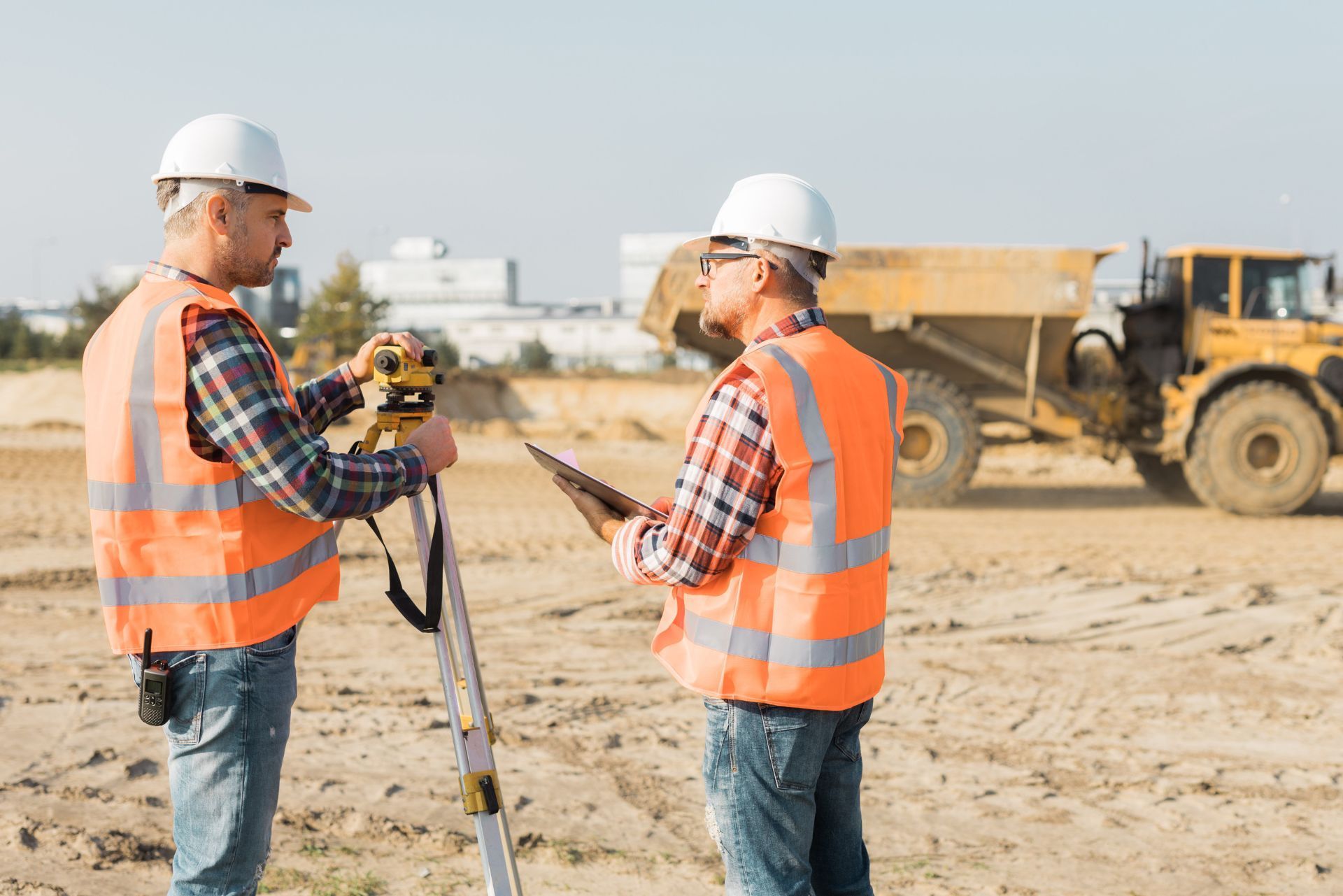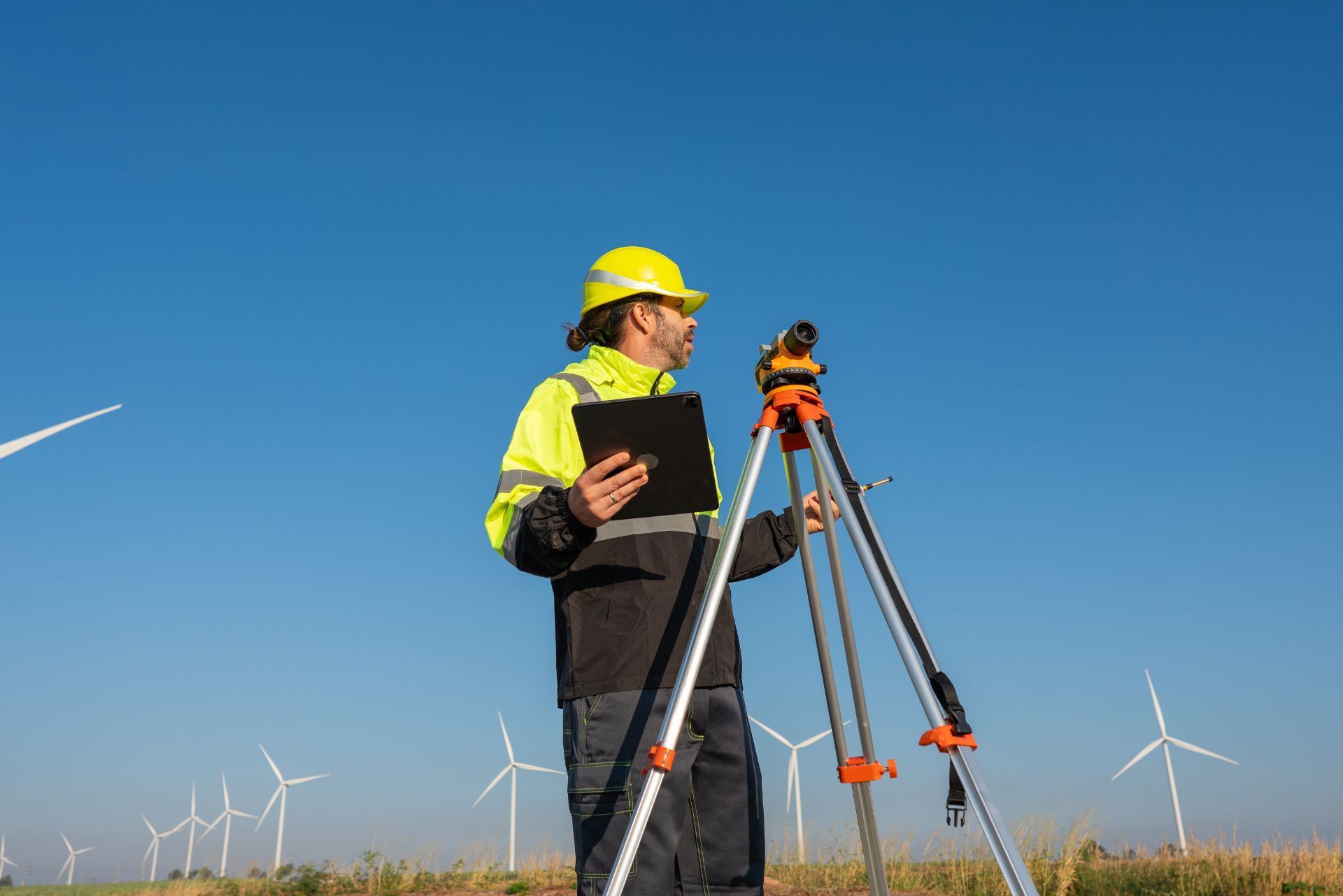Top 3 Recommended Policies

Operating a geophysical and surveying service business involves navigating a landscape filled with technical challenges, regulatory requirements, and operational risks. From seismic imaging to drone surveying, these businesses play a crucial role in resource exploration, environmental monitoring, and infrastructure development. However, with such specialized activities come unique liabilities and exposures that necessitate tailored insurance solutions.
Understanding the insurance needs specific to geophysical and surveying service companies is essential for protecting assets, managing risks, and ensuring business continuity. This article delves into the key aspects of business insurance for this sector, highlighting current market trends, common risks, and best practices to safeguard your operations effectively.
As the U.S. geophysical services market is projected to grow significantly—expected to exceed $29.3 billion by 2034 according to Global Market Insights—the importance of comprehensive insurance coverage becomes even more critical for companies aiming to thrive in this expanding industry.
Understanding the Unique Risks in Geophysical and Surveying Services
Geophysical and surveying businesses face a variety of risks that differ from those in more traditional industries. These risks stem from the nature of their work, which often involves field operations in remote or challenging environments, use of sophisticated technology, and interaction with clients’ valuable assets.
One of the primary concerns is equipment damage or loss. High-tech instruments such as seismic sensors, GPS devices, and drones represent significant investments. Damage during transport, operation, or due to environmental factors can lead to costly repairs or replacements. Moreover, the specialized training required to operate this equipment adds another layer of risk; if an operator is not adequately trained, the likelihood of mishaps increases, potentially compounding repair costs and operational downtime.
Liability risks are also prominent. For example, inaccurate survey data or seismic readings can result in flawed project decisions, leading to financial losses for clients and potential legal claims against the service provider. Additionally, onsite accidents involving employees or third parties can expose businesses to bodily injury claims. The complexity of these operations means that even minor errors can have significant repercussions, making it crucial for companies to invest in comprehensive insurance policies and robust risk management strategies.
Environmental risks cannot be overlooked either. Geophysical activities sometimes involve intrusive methods that might impact sensitive ecosystems, triggering regulatory scrutiny or environmental damage claims. The growing emphasis on sustainability means that companies must be vigilant in adhering to environmental regulations and best practices, as non-compliance can lead to severe penalties and reputational damage.
Operational and Technological Challenges
The integration of advanced technologies such as artificial intelligence (AI) and drones has revolutionized geophysical surveying, increasing productivity and data accuracy. However, these technologies introduce new risks, including software malfunctions, data breaches, and cyber threats. As businesses become more reliant on digital tools, the potential for cyberattacks grows, making it essential for firms to implement strong cybersecurity measures and regularly update their systems.
Global Market Insights highlights that "the integration of artificial intelligence in automation of seismic imaging and drone surveying increases productivity," but it also underscores the need for businesses to manage emerging risks associated with these innovations (source). Furthermore, the rapid pace of technological advancement means that companies must continuously invest in training their workforce to keep up with new tools and methodologies. This not only helps mitigate operational risks but also enhances the overall quality of service provided to clients, ensuring that they receive the most accurate and reliable data possible.
Additionally, the reliance on technology can lead to a disconnect between field operations and data interpretation. As teams become more specialized, ensuring effective communication and collaboration becomes paramount. Misalignment between field data collection and data analysis can result in discrepancies that may affect project outcomes. Therefore, fostering a culture of teamwork and open communication is essential for addressing these challenges and ensuring that all team members are aligned in their objectives and methodologies.

Essential Insurance Coverages for Geophysical and Surveying Businesses
Given the multifaceted risks, geophysical and surveying service providers should consider a comprehensive insurance portfolio tailored to their specific exposures. Below are the key types of insurance coverage that are typically essential:
General Liability Insurance
This coverage protects against claims of bodily injury or property damage caused by the business’s operations. For instance, if a drone surveying operation accidentally damages a client’s property, general liability insurance can cover legal fees and settlements. Additionally, it can also safeguard against incidents that occur on the business premises, such as slip-and-fall accidents involving clients or visitors. Such coverage is crucial in maintaining a professional reputation and ensuring that the business can continue to operate smoothly without the burden of unexpected legal costs.
Professional Liability (Errors & Omissions) Insurance
Since geophysical and surveying services rely heavily on data accuracy, professional liability insurance is critical. It covers claims arising from errors, omissions, or negligence in providing professional services, such as incorrect survey results leading to financial loss for a client. This type of insurance not only protects the business from potential lawsuits but also reinforces the importance of maintaining high standards in data collection and analysis. By investing in this coverage, businesses can demonstrate their commitment to quality and professionalism, which can enhance client trust and lead to more opportunities in the competitive market.
Equipment and Property Insurance
Protecting expensive equipment is vital. This insurance covers damage or loss of tools, drones, seismic instruments, and other physical assets, whether caused by accidents, theft, or natural disasters. Moreover, it can also include coverage for business interruption, which can be particularly beneficial if the loss of equipment leads to delays in project timelines. In an industry where precision and timeliness are paramount, having the right equipment insurance ensures that businesses can quickly recover and continue their operations without significant financial setbacks.
Workers’ Compensation Insurance
Fieldwork in geophysical surveying can be hazardous. Workers’ compensation insurance provides coverage for medical expenses and lost wages if employees are injured on the job. This coverage not only protects the workers but also helps the business manage the costs associated with workplace injuries. Furthermore, it can foster a safer work environment by encouraging companies to implement better safety protocols and training programs, ultimately reducing the likelihood of accidents and enhancing overall employee morale.
Cyber Liability Insurance
With increasing reliance on digital data and AI, cyber liability insurance is becoming indispensable. It protects against data breaches, cyberattacks, and associated liabilities that could disrupt operations or compromise sensitive information. As geophysical and surveying businesses often handle large volumes of data, including proprietary client information and sensitive environmental data, the potential risks of cyber incidents are significant. This insurance not only covers the financial repercussions of a breach but also provides access to resources for crisis management and recovery, ensuring that businesses can respond effectively to any cyber threats they may face.
Market Trends Impacting Insurance Needs
The geophysical services market is evolving rapidly, influenced by technological advancements and regulatory developments that shape insurance requirements.
Growth and Consolidation in the Market
While the U.S. geophysical services market is expected to grow substantially—from $5.1 billion in 2024 to over $29.3 billion by 2034—there is also a slight decline in the number of businesses. IBISWorld projects a 1.4% decrease in the number of geophysical services businesses in 2025, with 3,418 companies estimated in operation (source).
This trend suggests increasing consolidation and specialization, which may lead to more complex insurance needs as companies expand their service offerings or merge operations. As larger firms absorb smaller ones, they often bring with them unique operational risks and liabilities that require tailored insurance solutions. This shift could also foster a competitive landscape where companies are incentivized to innovate their insurance policies, ensuring they adequately cover the diverse range of services being offered.
Technological Innovation and Automation
Advancements in seismic exploration and drone technology are driving market growth and operational efficiency. The "Geophysical Services Market Report 2025" notes that these innovations contribute to the market’s expansion, particularly in geothermal energy development (source).
However, such innovations also introduce novel risks that insurers and insureds must address, including equipment malfunction, data integrity issues, and regulatory compliance challenges. As companies increasingly rely on automated systems and advanced data analytics, the potential for cyber threats rises, necessitating comprehensive cyber liability insurance. Moreover, the integration of artificial intelligence in data interpretation can lead to unforeseen liabilities if the technology misinterprets geological data, resulting in costly operational errors.
Regulatory and Environmental Considerations
Responsible resource exploration is a growing focus worldwide. The EU’s Horizon Europe program allocated €53.92 million in 2024 to develop geophysical techniques that promote sustainable and responsible exploration (source).
These initiatives reflect increasing regulatory scrutiny and environmental standards, which can affect insurance underwriting and claims related to environmental liability and compliance risks. As governments implement stricter regulations regarding emissions and ecological impact, insurance providers may need to adapt their policies to cover new liabilities associated with non-compliance. Additionally, companies may find themselves investing in more robust environmental risk management strategies, which could include enhanced training for employees on regulatory compliance and the adoption of greener technologies to mitigate potential liabilities.
How to Choose the Right Insurance Provider
Selecting an insurance provider that understands the nuances of the geophysical and surveying industry is crucial. Businesses should look for insurers with experience in underwriting specialized risks and offering customized policies. This ensures that the unique challenges faced by professionals in these fields are adequately addressed, providing peace of mind and financial security.
Evaluating Coverage Options and Limits
It is important to assess policy limits against potential exposures. For example, the cost of replacing high-tech equipment or defending against professional liability claims can be substantial. Adequate coverage limits help prevent underinsurance. Additionally, businesses should consider the geographical scope of their operations, as risks can vary significantly from one region to another. Insurers that offer tailored solutions based on local conditions and industry standards can provide an added layer of protection.
Reviewing Claims Support and Risk Management Services
Beyond coverage, insurers that provide proactive risk management advice and responsive claims handling add significant value. This support can help businesses mitigate risks before they result in claims and navigate complex claims processes efficiently. Furthermore, insurers that offer educational resources or training programs can empower businesses to enhance their safety protocols and operational practices, ultimately reducing the likelihood of incidents that could lead to claims.
Considering Emerging Risks and Innovations
With the integration of AI and InsurTech innovations, such as those explored in the 2024 study "Improving Business Insurance Loss Models by Leveraging InsurTech Innovation"
(source), insurance providers are increasingly using data-driven models to better assess and price risks. Choosing a forward-thinking insurer can ensure coverage evolves alongside technological advancements. Moreover, as industries adapt to new challenges such as climate change and cybersecurity threats, it's essential to partner with an insurer that not only understands these emerging risks but is also proactive in developing solutions that address them. This foresight can be invaluable in maintaining business continuity and safeguarding assets in an ever-changing landscape.

Best Practices for Managing Insurance in Geophysical and Surveying Businesses
Effective insurance management goes beyond purchasing policies. Implementing best practices can reduce risk exposure and optimize insurance benefits.
Regular Risk Assessments
Conduct periodic evaluations of operational risks, equipment condition, and regulatory compliance to identify insurance gaps or emerging exposures. These assessments should not only focus on current risks but also anticipate potential future challenges, such as changes in technology or shifts in regulatory landscapes. By staying proactive, businesses can adjust their insurance strategies accordingly, ensuring that they remain adequately covered as their operations evolve.
Employee Training and Safety Protocols
Investing in comprehensive safety training reduces workplace accidents and related claims. Well-documented safety programs also support favorable insurance terms. Training should encompass not only the safe operation of equipment but also emergency response procedures and hazard recognition. Regular drills and refresher courses can reinforce safety protocols, fostering a culture of safety that permeates the organization. This commitment to safety not only protects employees but also enhances the company’s reputation, which can be a significant asset in negotiations with insurers.
Maintaining Accurate and Transparent Records
Detailed records of contracts, equipment inventories, and incident reports facilitate smoother claims processing and help demonstrate due diligence to insurers. Furthermore, maintaining an organized database can aid in tracking trends over time, allowing businesses to identify recurring issues and address them proactively. This level of transparency can also build trust with insurance providers, potentially leading to better terms and lower premiums as insurers recognize the company’s commitment to risk management.
Engaging with Insurance Brokers Specializing in Geophysical Services
Specialized brokers bring industry-specific knowledge and can tailor insurance solutions to unique business needs, ensuring optimal coverage and cost efficiency. These brokers often have established relationships with insurers that understand the nuances of the geophysical and surveying sectors, which can lead to more favorable policy terms. Additionally, they can provide insights into emerging trends in risk management and insurance, helping businesses stay ahead of the curve. Regular consultations with these experts can also uncover new insurance products or services that may be beneficial as the industry evolves.
Conclusion: Protecting Your Geophysical and Surveying Business for the Future
The geophysical and surveying services industry is poised for significant growth, driven by technological innovation and expanding market demand. However, this growth comes with complex risks that require thoughtful and comprehensive insurance strategies.
By understanding the unique exposures of the sector, selecting appropriate insurance coverages, and partnering with knowledgeable providers, businesses can safeguard their operations against unforeseen events. Staying informed about market trends, regulatory developments, and emerging technologies will further enhance risk management efforts.
As the industry evolves, so too must the approach to insurance—embracing innovation while maintaining robust protection is key to long-term success in this dynamic field.
Contact Us
Phone
Location
9595 Six Pines Dr, Suite 8210, The Woodlands, TX 77380

